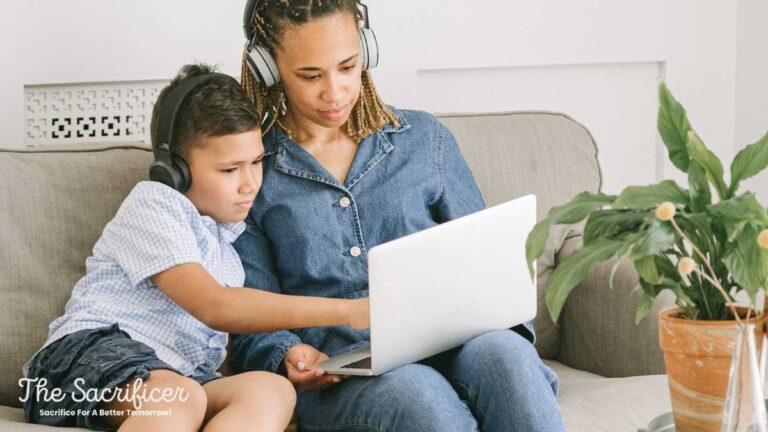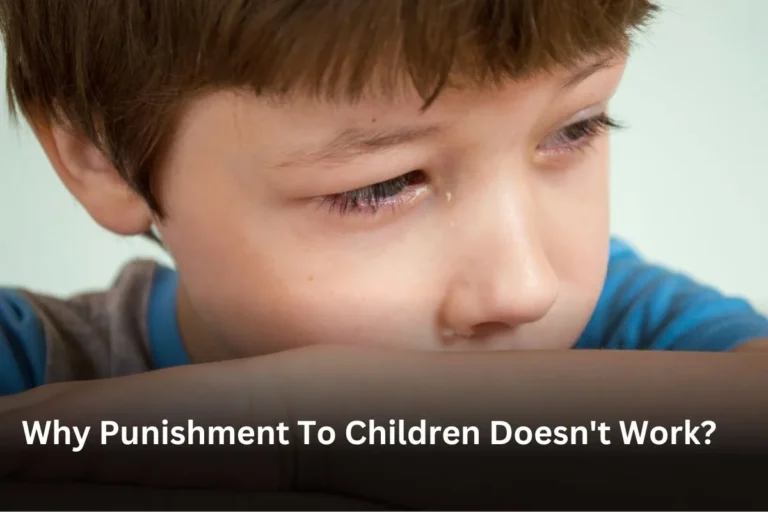Pros And Cons of Parents Monitoring Social Media – Right Or Wrong?
Social media is an extensive and ever-expanding space that has revolutionized how people communicate, share information, and interact. As social media platforms become more and more prevalent, they are increasingly being used by children and young adults.
However, social media poses various risks, such as cyberbullying, inappropriate content, and online predators. As a result, many parents are torn between monitoring their children’s social media activities and respecting their children’s privacy and autonomy.
If you want to monitor the activities of your child or children on social media activities, we’ve got this article for you. We’ll discuss the pros and cons of parents monitoring social media. Before getting into the topic, let’s start with the overview without further delay.
Pros And Cons of Parents Monitoring Social Media – A Quick Overview

Social media platforms like Facebook, Instagram, and TikTok have become essential to our daily lives, and children are no exception. We all know social media allows children to connect with friends and relatives, express themselves, and share their interests.
However, we must be aware of social media’s possible dangers. These include tanda bullying, offensive content, and the threat of online predators. These risks make it essential for parents to know the pros and cons of monitoring their children’s social media activities.
Pros of Parents Monitoring Social Media
Some parents may argue that parental social media monitoring is an invasion of privacy. But this can have significant benefits in keeping children safe online. So, if you are one of those parents, read the pros of monitoring your child’s social media to clear your doubts.
Protects Their Child From Cyberbullying
Cyberbullying has, these days, become a prevalent issue on social media, and it can have severe consequences on a child’s mental health and well-being. Your children might become the victim of harassment online, and their mental health can be affected to a great extent.
Parents can find potential dangers and risks by monitoring their children’s social media activities and intervening in case of improper behavior. This protects children from cyberbullying and harassment, and parents can help their children overcome any challenges they face online.
Helps Parents Identify The Potential Risks
Social media platforms are not always a safe place for children. And especially when the child is under 18—they can still create social accounts at this age. So, parents can identify potential dangers and risks by monitoring their children’s social media activities.
For example, parents can monitor who their child is communicating with. Parents can see what content their children share by opening their social accounts. They can also know about their children’s daily time on social media and set their routines for using the internet.
Parents Can Intervene In Inappropriate Behavior
Parents can intervene in inappropriate behavior by monitoring their child’s social media activities. They can take appropriate steps to address the situation, such as reporting the case to the platform or blocking the user. Here are some ways parents can intervene in such behavior:
- Limit or block their child’s social media access until they exhibit appropriate behavior.
- Monitor their child’s social media activity to ensure they are not in indecent behavior.
- Parents can involve the authorities to take proper action if illegal activity is involved.
- Provide full support to their child to help them understand the results of the behavior.
Promotes Responsible Online Behavior
Parents who actively monitor their children’s social media activities can promote responsible online behavior. By doing so, they can guide their children on using social media safely and responsibly. Here are some ways parents can promote responsible online behavior:
- Set rules for their child’s social media use, i.e., time limits and privacy settings.
- Model responsible online behavior by following the rules they set for their child.
- Educate their child on the potential risks, such as online scams and identity theft.
- Encourage their child to communicate openly about their online experiences.
Understand The Child’s Activities And Interests
Parents can better understand their children’s online activities and interests by monitoring their social media activities. This can help parents engage with their children on topics that interest them and support their child’s online activities. What else can this help in?
Parents can gain insight into their child’s life by monitoring their social media accounts. They can learn about their child’s interests, activities, and interactions with others online. They can see what their child shares online and help them manage their online reputation.
Monitor The Child’s Overall Mental Health
Social media can significantly impact a child’s mental health and well-being. Parents can identify changes in their child’s behavior by monitoring their children’s social media activities. This can help parents take proper steps to support their child’s well-being. Here’s how:
- Keep track of any mood or behavior changes, e.g., sudden changes in behavior.
- Parents can ensure their child uses social media in a balanced and healthy way.
- Identify signs of cyberbullying, such as negative comments, threats, or harassment.
- Encourage children to interact with positive role models in online communities.
Ensures The Child Is Engaged In Legal Activities
Monitoring a child’s social media can also help parents ensure they are not engaging in illegal activities. Parents can determine whether their children associate with negative individuals. It can help parents identify signs of drug use, gang activity, or other criminal behavior.
Here are some ways parents can accomplish this:
- Monitor social media activity for any posts or messages related to drug or alcohol use.
- Check their child’s social media accounts for any inappropriate or prohibited content.
- Track child’s online interactions to ensure they are not involved in criminal activities.
- Set rules around social media use to prevent children from engaging in illegal activities.
Cons of Parents Monitoring Social Media
Why should parents monitor the social media of their children? You have learned every aspect of the topic, right? While there are benefits to parental social media monitoring, there are also some downsides. Here are some cons to keep in mind before taking this step:
Violates The Child’s Privacy And Autonomy
One of the biggest concerns with parents monitoring social media is that it can violate a child’s privacy and autonomy. Children have the right to privacy and make their own choices. So, monitoring their social media accounts can feel intrusive and overbearing.
Hinders The Child’s Decision-Making Skills
When parents monitor their child’s social media accounts, it can also hinder decision-making skills. Children need to learn how to navigate social situations and make responsible decisions independently without relying on their parents to intervene.
Creates Mistrust And Resentment In The Child
Monitoring a child’s social media accounts can also create a sense of mistrust and resentment in the child. Children may feel their parents do not trust them or are trying to control their lives. And at the end, this can cause tension in the parent-child relationship.
Causes Conflicts Between Parent And Child
Monitoring a child’s social media can also lead to conflicts between parents and children. They may not want their parents to know everything they are doing online. Some children may feel like their privacy is being invaded, and they can even fight with their parents.
Leads To A False Sense of Security For Parents
Parents may also develop a false sense of security when monitoring their child’s social media accounts. While they can identify potential dangers or risks, they cannot prevent all negative online behavior. So, they can’t protect their child from every potential threat.
Causes Stress For Both Parents And Children
Monitoring a child’s social media accounts can also cause anxiety and stress for parents and children. Parents may feel overwhelmed by the amount of information they are monitoring. However, children may feel like they are constantly being watched and judged.
Child View This As Intrusive And Overbearing
Children may also view their parents monitoring their social media accounts as intrusive and overbearing. They may feel like they have no control over their online activities. They may also feel their parents do not trust them to make responsible decisions.
Should Parents Monitor Their Children’s Social Media?
In today’s digital age, social media permeates our lives daily, especially among young people and adults. Children use social media for various reasons, such as connecting with friends, sharing personal information, and keeping up with current events.
However, many parents are worried about their children’s online safety and whether they are engaging in appropriate behavior online. As a result, many parents consider monitoring their children’s social media accounts to ensure their safety and well-being.
Conclusion – Pros And Cons of Parents Monitoring Social Media
The decision to monitor a child’s social media activity is complex, involving weighing the benefits and drawbacks carefully. As we have seen, there are several advantages to parental monitoring. So, monitoring children’s social media for their safety is a good idea.
Some people wonder why parental control is bad and why parents shouldn’t look at their child’s social media. We’ve explained the disadvantages; your child may find it a direct attack on their life. So, balancing monitoring and a child’s privacy is crucial to maintain a good relationship.
Ultimately, you should monitor your child’s social media use case-by-case basis. It would help to consider the child’s age, maturity level, and previous behavior. By finding the right balance, you can help your children safely navigate the digital world and learn to survive.





